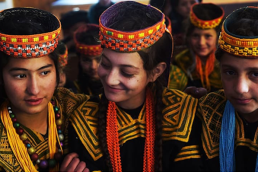Pakistan. A country. A place. Our homeland which is finally progressing, has seen much progression throughout history. Pakistan is home to a variety of minority groups, including religious and ethnic groups such as Christians, Hindus, Sikhs, Ahmadis, Pashtuns, Mohajirs, and even Shias.
Pakistan’s religious minorities have long faced discrimination and persecution; however, a step towards positive development has been taken recently.
In 2017, Pakistan took steps to protect the rights of the minorities. For instance, the Hindu Marriage Act was passed, providing Hindu marriages to be recognized by law. Similarly, multiple rights were granted to the Christians & Sikhs too.
Religious minorities have also been given reserved seats in both the national and provincial assemblies to increase minority representation at the national and provincial levels. By doing this, it is ensured that they are heard during the political process.
With Pakistan being an ethnically diverse community, tensions and conflicts among various ethnic and racial groups have developed. Through this, Pakistan has provided significant powers to its provinces allowing them to have a greater say in their governance. This has been beneficial for ethnic minority groups because their concerns can be addressed. Initiatives to preserve and promote the cultural history of minority communities have received assistance from the government and several organizations. This includes safeguarding historical sites, customs, and languages.
Despite these encouraging advances, Pakistan’s path toward protecting minority rights still faces obstacles. Significant attention and reform are still needed for problems like blasphemy laws, forced conversions, and discrimination in employment and education. However, the advancements made thus far show that Pakistan is beginning to understand how crucial it is to defend the rights of its many minority populations.
In Pakistan, significant action has been taken to address the needs and rights of the country’s minority populations. A more inclusive and tolerant society is a result of legislative changes, political empowerment, religious freedom initiatives, education, and advocacy work. While obstacles still exist, these advances point toward the direction of a more equal and peaceful Pakistan where everyone’s rights, regardless of religion or ethnicity, are respected and upheld.

Scarsdale News Network
Authors: Rimsha Ahmad & Maha Ahmad
